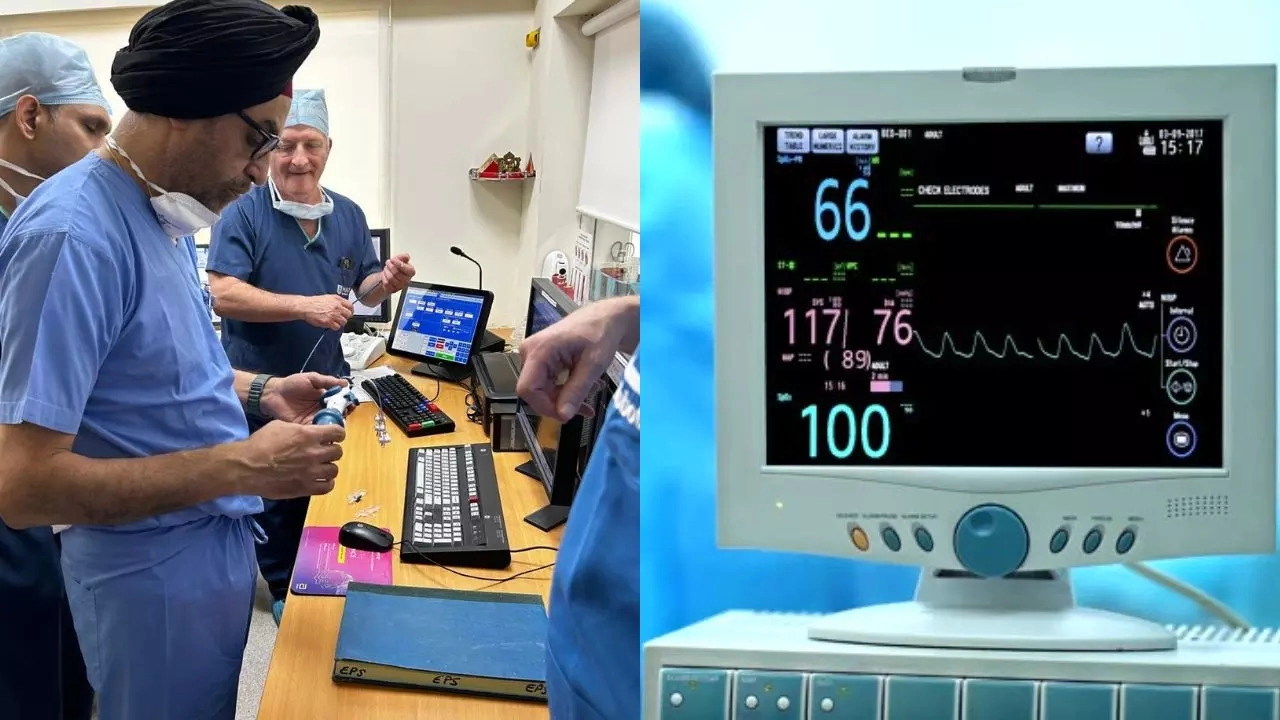
Doctors Perform Life-Saving, Incision-Free Surgery With India’s First Leadless Pacemaker (Image Credits: Max Hospitals and iStock)
A 74-year-old woman had been struggling with severe complications after an infection from a previously implanted pacemaker. She was admitted to Max Super Speciality Hospital, Saket and doctors there saved the life of the lady by performing a life-saving incision-free surgery. The patient arrived at the hospital in critical condition after her previously implanted pacemaker got severely infected, causing the infection to spread into her bloodstream. The situation was life-threatening, as the pacemaker and its leads had to be removed.
After her condition stabilised through antibiotics and a blood transfusion, the medical team led by Dr Balbir Singh, Chairman, Cardiology, decided to take an advanced approach — the implantation of a leadless pacemaker. Unlike traditional pacemakers, which require an incision in the chest and lead wires connected to the heart, this technology is implanted through a minimally invasive catheter, without the need for any incisions or stitches. The device, called the AVEIR VR, is the first of its kind in India.
Speaking about the procedure Dr Balbir Singh said, "We successfully implanted the leadless pacemaker without making any incisions or stitches. The patient responded remarkably well and is now ready to move around. She has been discharged just one day after the surgery. She is doing well with no complications."
The leadless pacemaker is 90 per cent smaller than traditional devices and is designed to be more comfortable for the patient while reducing the impact of the procedure. It’s equipped with a retractable design and can be safely removed if required. This is a unique feature and is not available in other leadless pacemakers. The patient is recovering well and looking forward to resuming her daily activities.
How Do Infections Happen With A Pacemaker?
Infections caused by pacemakers are relatively rare but can be serious when they do occur. Pacemaker-related infections typically happen when bacteria enter the body during the initial implantation or replacement of the device, which requires a surgical procedure. According to research published in the Journal of the American College of Cardiology, bacteria can enter the surgical site and attach to the pacemaker leads or the generator. Once there, the bacteria form biofilms, which are protective layers that make them resistant to both the immune system and antibiotics.
A 2020 study in Circulation found that pacemaker infections are most often caused by common skin bacteria, like Staphylococcus aureus and Staphylococcus epidermidis. Infections can take days to years after implantation, leading to symptoms such as redness, swelling, pain at the site, fever, or, in severe cases, bloodstream infections.
Get Latest News Live on Times Now along with Breaking News and Top Headlines from Health and around the world.


